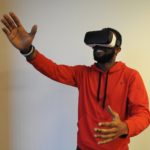
Sarah Gregory writes her debut elf blog on a clinical review in the Evidence-Based Mental Health journal about digital technologies for the assessment of cognition.
[read the full story...]
Sarah Gregory writes her debut elf blog on a clinical review in the Evidence-Based Mental Health journal about digital technologies for the assessment of cognition.
[read the full story...]
Maria Loades explores a randomised controlled trial of people with depression, which looks at the impact and change of attitudes towards internet interventions.
[read the full story...]
Lina Gega from the Closing the Gap Network explores a recent review of digital technology for health promotion, which looks at opportunities to address excess mortality in people living with severe mental illness.
[read the full story...]
Muna Dubad explores a Danish qualitative analysis of young adults’ perspectives of a smartphone app (MindFrame), which is designed for people recently diagnosed with schizophrenia, to empower them to self-manage their condition.
[read the full story...]
Aislinn Bergin writes her debut elf blog on a recent meta-analytic examination of attrition in virtual reality exposure therapy for anxiety disorders.
[read the full story...]
Victoria Betton summarises and considers a recent opinion piece by John Torous and colleagues that heads towards a consensus around standards for mental health apps and digital mental health.
[read the full story...]
Bethan Davies shares her thoughts on a qualitative study of service users’ experience about the acceptability, use and safety of the BlueIce app for young people who self-harm.
[read the full story...]
Mark Brown mulls over a new systematic review on factors affecting the implementation of digital health interventions for people with psychosis or bipolar disorder, and their family and friends.
[read the full story...]
Elvira Perez Vallejos and David Daley consider the findings of a recent cohort study in JAMA that looks into the association between digital media use and subsequent symptoms of ADHD in adolescents.
[read the full story...]
Jack Barton marvels at the paradox that the very digital devices that harm our sleep patterns so terribly, may also be a possible solution to insomnia and sleep problems in young people. A new systematic review on digitally-delivered cognitive-behavioural therapy (eCBTi) for youth insomnia shows a little promise.
[read the full story...]